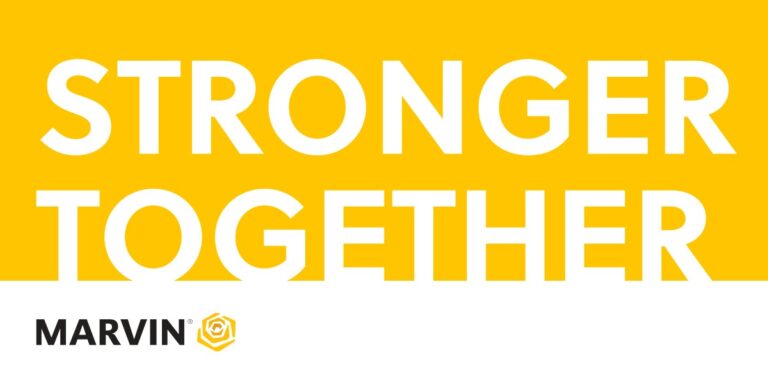Marvin’s partnership with NDSU is a testament to the power of community, innovation, and the belief that anything is possible.
Read MoreThe Rural Dilemma
Rural schools struggle to keep teachers. NDSU's Teacher Leadership Academies are changing that.
Story by Micaela Gerhardt | Photos by Nicole Thom-Arens | January 18, 2022
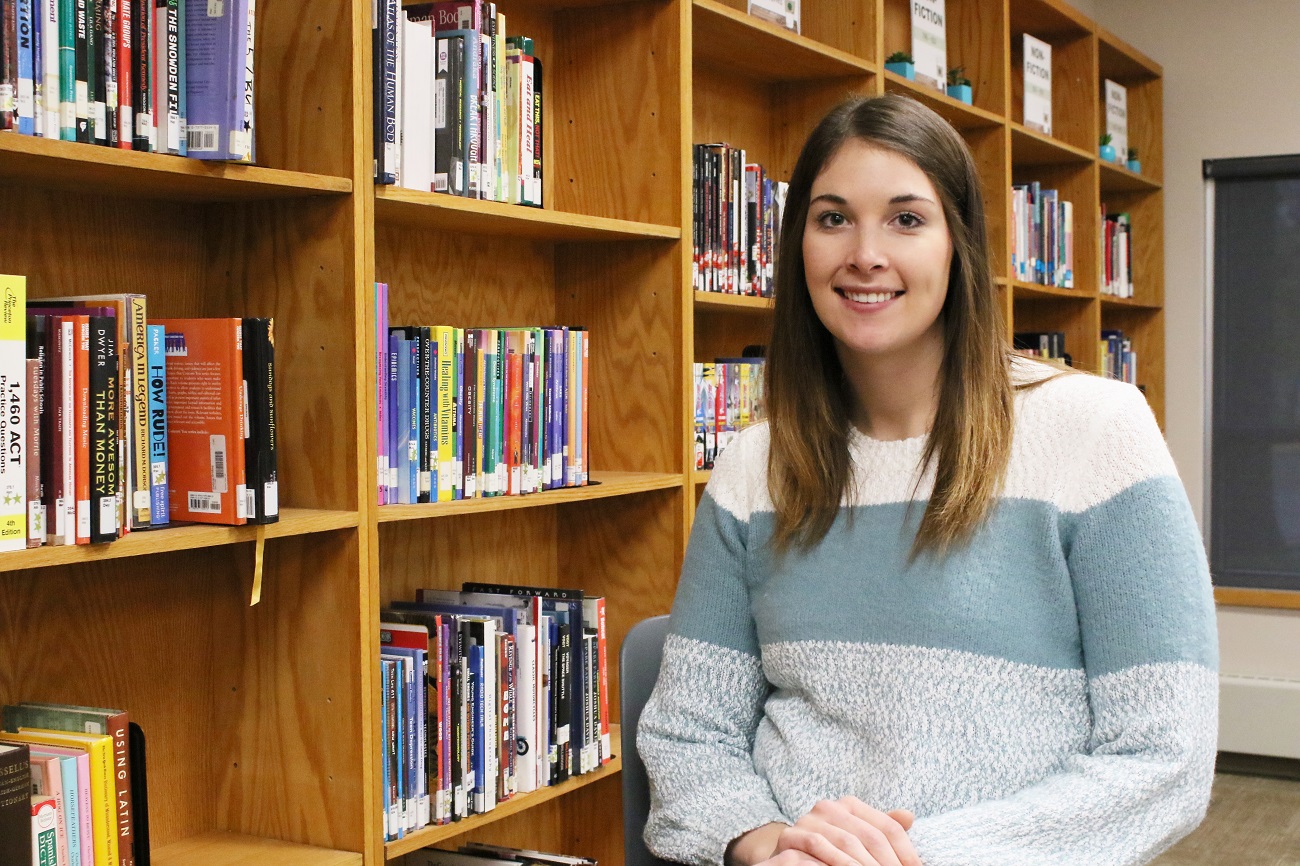
On a Wednesday morning in late October, Ellendale Public School, which houses grades K-12, thrummed with activity. There were the nostalgic sounds of sneakers squeaking against shiny gymnasium tiles and the romping music of Mrs. Blondo’s band resonating in the hallway. Rain sporadically peppered the windows, and dishes clinked in the cafeteria where the cooks were preparing spaghetti with meat sauce to be served on plastic trays beside green beans and milk in cardboard cartons.
Michael Kaiser ’09, ’14, the school superintendent, says rural communities depend on strong public schools, yet many rural schools suffer from high teacher turnover rates because larger schools frequently attract more teachers and funding. Moreover, the COVID-19 pandemic has triggered an exodus of teachers further compounding the staffing shortage. Ellendale School, however, was able to retain all of its teachers this year while many other schools still have vacancies. Michael says NDSU’s Teacher Leadership Academy, a program that gives teachers the opportunity to earn their master’s degree in educational leadership while continuing to live and teach in their own communities, has played a significant role in this success.
“The NDSU Teacher Leadership Academy has created this valuable space for our teachers to come together, share ideas, and learn from each other,” Michael said. “The program is helping our school retain teachers as it creates a path for them to grow and practice their leadership skills.”
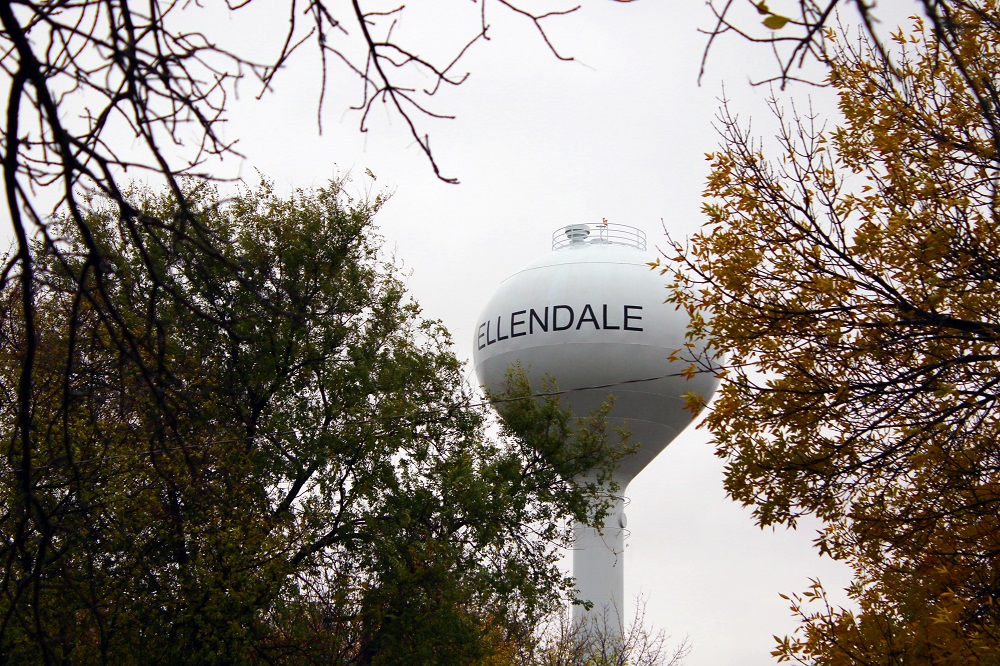
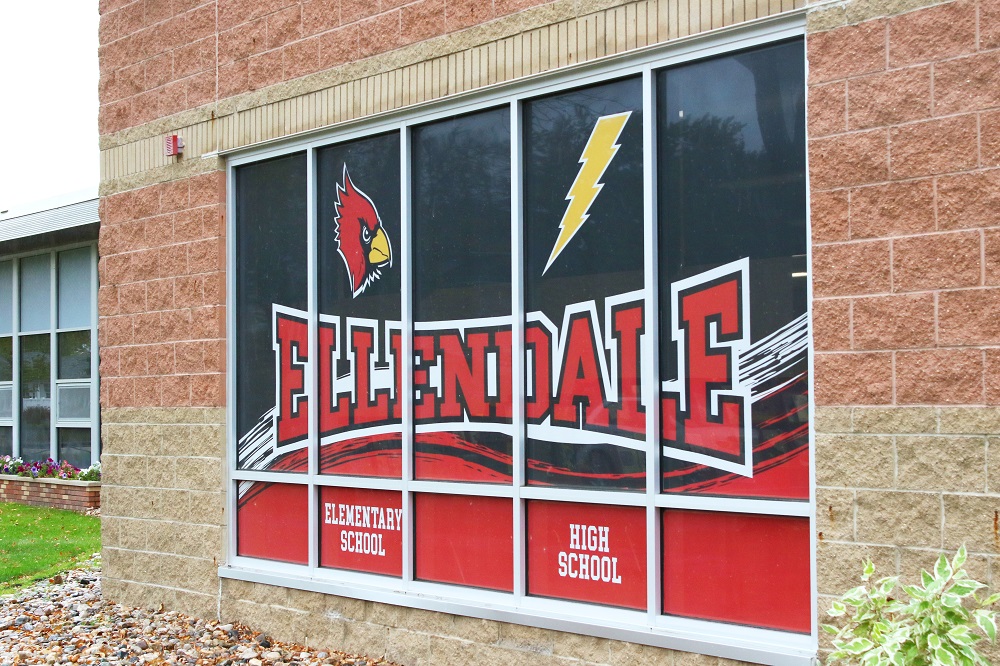
"I believe wholeheartedly that schools are the bedrocks of communities, and strong communities need strong schools…"
Justin Benna
Assistant Professor at NDSU
With scholarships and grants provided through philanthropic support from the Burgum Foundation, teachers from Ellendale and Oakes Public Schools have partnered to form a Teacher Leadership Academy in their own district. NDSU professors commute to their schools so that classes can be held on-site, meaning rural teachers do not have to move, travel, or earn their degrees remotely in order to participate in the program.
The Burgum Foundation, established in 2015 by Frederick ’66 and Jody Burgum, immediately began investing in NDSU’s Teacher Leadership Academy program and helped launch a new academy in the Northern Cass School District in Hunter, North Dakota, that same year. The Foundation’s mission is to make a meaningful difference in people’s lives and make North Dakota communities stronger. Support from the Burgum Foundation continues to address the rural dilemma by helping North Dakota’s small schools retain excellent teachers across the state.
“I believe wholeheartedly that schools are the bedrocks of communities, and strong communities need strong schools — but schools can’t be strong unless they have teachers who are committed, loving, and constantly learning,” Justin Benna, assistant professor of educational and organizational leadership at NDSU, said. “The Burgum Foundation has been a strong partner since the beginning in helping support our academies in rural areas.”
Katie Itterman, executive director of the Burgum Foundation, grew up in Arthur, North Dakota, and went to school in Northern Cass, where she graduated with a class of 33 students. She credits her teachers and school administrators for providing her with an excellent education but recognizes the challenges many rural schools face in terms of funding, access to opportunities, and recruiting and retaining educators.
“The Burgum Foundation aims to help alleviate those burdens on rural administrators and school boards so that every rural student in North Dakota has the exact same opportunities as their counterpart in a larger, more metropolitan school,” Katie said. “Our mission is to serve teachers and students across the state, and our partnership with NDSU, as a land-grant institution, makes perfect sense.”
Ann Clapper and Thomas Hall, former professors in the School of Education at NDSU, worked and strategized to get Teacher Leadership Academies off the ground in North Dakota, and Katie said the program wouldn’t be what it is today without their efforts.
“NDSU has, over the course of the last six years, been able to streamline the original program model, duplicate it in different districts, and continue to identify what makes a Teacher Leadership Academy successful in a particular district,” Julia Asprey, grants manager at the Burgum Foundation, said.
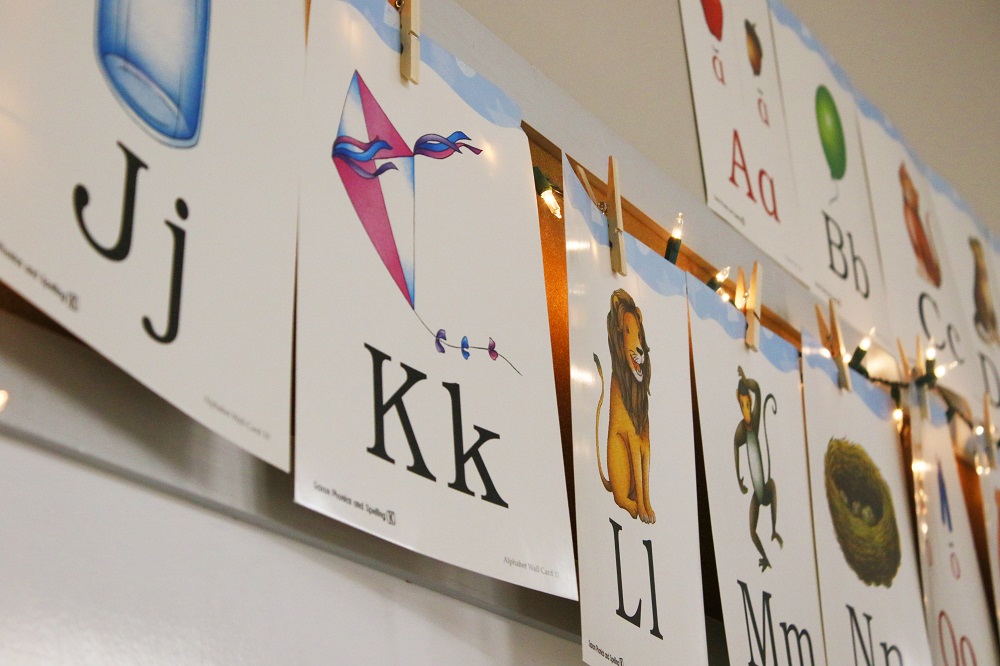
Whitney Werdel, a kindergarten teacher at Ellendale Public School, is in her third semester of the Teacher Leadership Academy. On the October morning I visited the school, her classroom was strung with twinkling lights and there were painted jack-o-lanterns on a table near the door. Seven students (one was out sick) sat on a multi-colored rug. Whitney showed them an image of an apple on the SMART Board; the students said “apple” out loud and used their hands to practice chopping it into the appropriate number of syllables. When Whitney asked one of the kindergartners to move the word “elephant” below its corresponding number of syllables, the small girl rushed up to the front of the class, her light-up sneakers flashing pink and green, and said, sighing with a sense of awe, “I was hoping for that one!”
After the phonics activity, Whitney divided the kindergartners into groups to work on different reading activities. By October, many of her students were beginning to blend letters into words, and her classroom was filled with the sound of language taking shape, letters and words merging into meaning.
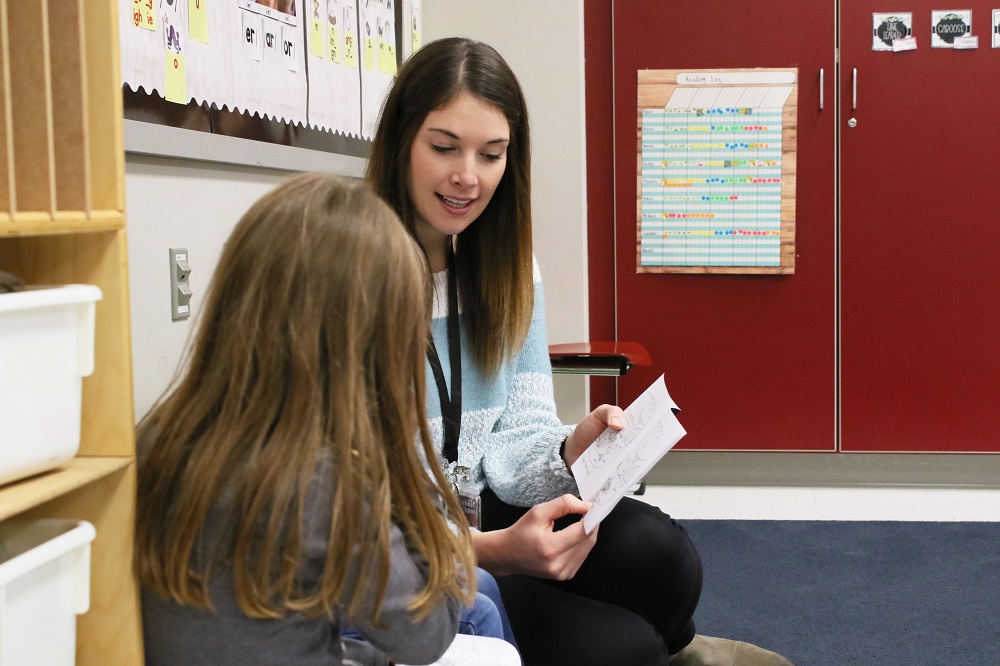
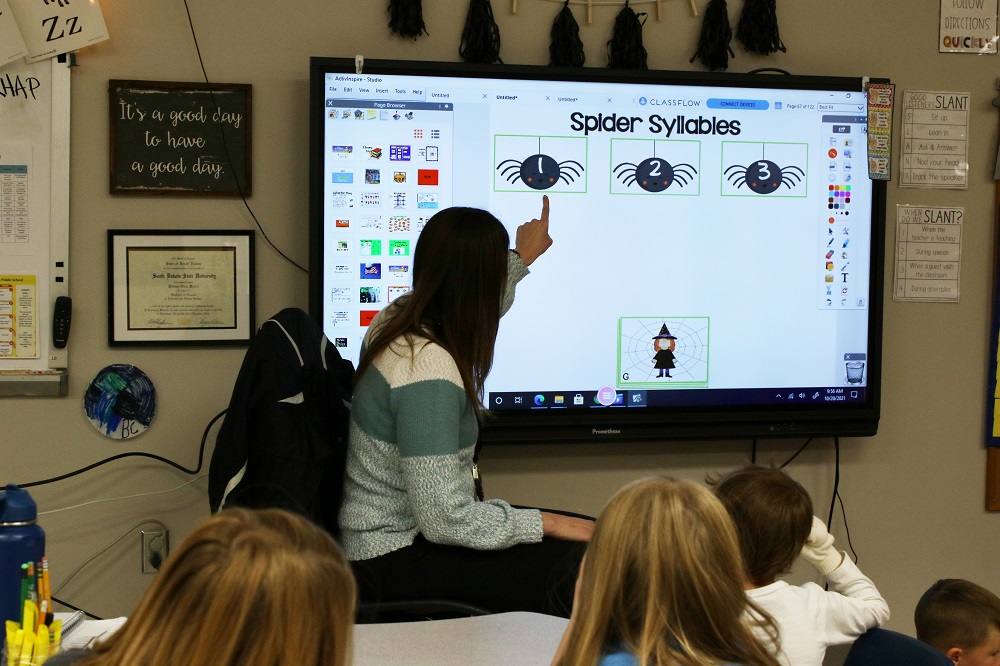
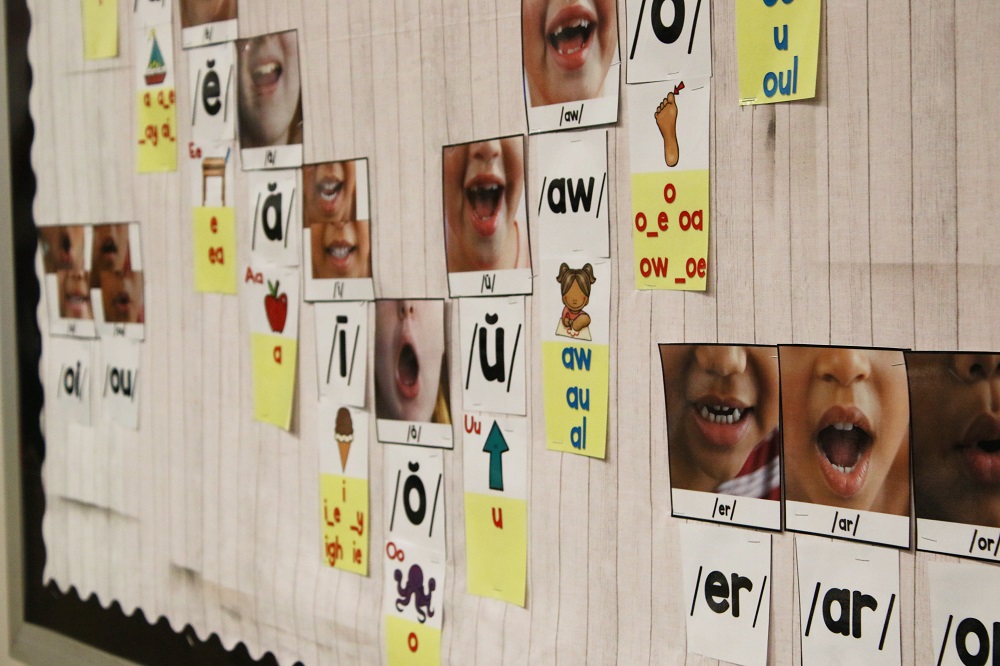

"If teachers really understand what the driving factors are in the community and in the students' lives, they're better able to serve those students."
Katie Itterman
Executive Director of the Burgum Foundation
Whitney grew up in a military household and was involved in military camps; she became a junior counselor, then a senior counselor, and eventually earned a paid position designing fun learning projects and activities for the kids. She started as a nursing major at South Dakota State University and switched to the teaching program after a conversation with her advisor.
“I’ve always felt a gravitational pull toward being a leader,” Whitney said. “I found [teaching] was really my niche and that it was where I was meant to be.”
In her three years of experience, Whitney has taught family and consumer science to seventh through 12th graders; third grade; and now, kindergarten — all at Ellendale Public School. She always knew she wanted to go back school, so when her superintendent approached her about the Teacher Leadership Academy, she felt it was the perfect opportunity to pursue an advanced degree.
“I’ve learned a lot about what our school mission and vision statements are and how I can teach and lead with those goals in mind. I’ve also learned more about what it means to teach equitably. For example, I’m taking a look at each of my students, seeing what kind of technology access they have outside of school, and helping to fill in the gaps in the classroom,” Whitney said. “I want to thank the Burgum Foundation for providing me with this opportunity to learn and grow my leadership skills.”

In one of her current courses through the Teacher Leadership Academy, Whitney and her colleagues from Ellendale and Oakes are studying problems of practice and conducting action research on how to address challenges that arise in their own classrooms and school districts. The Burgum Foundation sees this cohort model as a critical part of the program’s success.
“The cohort model of two districts coming together is so valuable for educators. Within a district, there are some challenges you don’t really have perspective on until you’re consulting somebody from another district, saying, ‘This is what we’re really struggling with here. What is your school doing about this?'” Julia said. “That marriage of two districts participating together adds a lot of value to the program.”
“Then, they get to keep that institutional knowledge in-house, which is a key factor,” Katie said. “There’s a different fabric to every community, and if teachers really understand what the driving factors are in the community and in the students’ lives, they’re better able to serve those students.”
There are multiple Teacher Leadership Academies in districts across the state that recruit educators from elementary, middle, and high schools. Participants teach a diverse range of subjects, including core curriculum, art, music, special education, and more. Each academy has a district liaison who is actively involved in the oversight, design, and delivery of the program in order to help make the learning highly relevant to their own school setting.
“We want to continue to start up and sustain relationships with school districts who are invested in the hard work that leadership preparation entails because leadership in schools, no matter what form it takes, is too important to take lightly,” Justin said. “Kids, families, and communities deserve schools and people in them who are invested in serious learning and meaningful action.”
Learn more about NDSU’s Teacher Leadership Academy program on NDSU’s website.
Share This Story
Related Stories
Success: A Team Project
With support, Caryn Marty ’26 is empowered to say “yes” to all the possibilities NDSU has to offer.
Read More